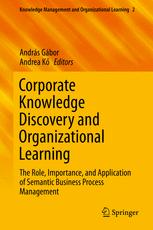

Most ebook files are in PDF format, so you can easily read them using various software such as Foxit Reader or directly on the Google Chrome browser.
Some ebook files are released by publishers in other formats such as .awz, .mobi, .epub, .fb2, etc. You may need to install specific software to read these formats on mobile/PC, such as Calibre.
Please read the tutorial at this link: https://ebookbell.com/faq
We offer FREE conversion to the popular formats you request; however, this may take some time. Therefore, right after payment, please email us, and we will try to provide the service as quickly as possible.
For some exceptional file formats or broken links (if any), please refrain from opening any disputes. Instead, email us first, and we will try to assist within a maximum of 6 hours.
EbookBell Team

4.1
20 reviewsThis book investigates organizational learning from a variety of information processing perspectives. Continuous change and complexity in regulatory, social and economic environments are increasingly forcing organizations and their employees to acquire the necessary job-specific knowledge at the right time and in the right format. Though many regulatory documents are now available in digital form, their complexity and diversity make identifying the relevant elements for a particular context a challenging task. In such scenarios, business processes tend to be important sources of knowledge, containing rich but in many cases embedded, hidden knowledge.
This book discusses the possible connection between business process models and corporate knowledge assets; knowledge extraction approaches based on organizational processes; developing and maintaining corporate knowledge bases; and semantic business process management and its relation to organizational learning approaches. The individual chapters reveal the different elements of a knowledge management solution designed to extract, organize and preserve the knowledge embedded in business processes so as to: enrich organizational knowledge bases in a systematic and controlled way, support employees in acquiring job role-specific knowledge, promote organizational learning, and steer human capital investment. All of these topics are analyzed on the basis of real-world cases from the domains of insurance, food safety, innovation, and funding.